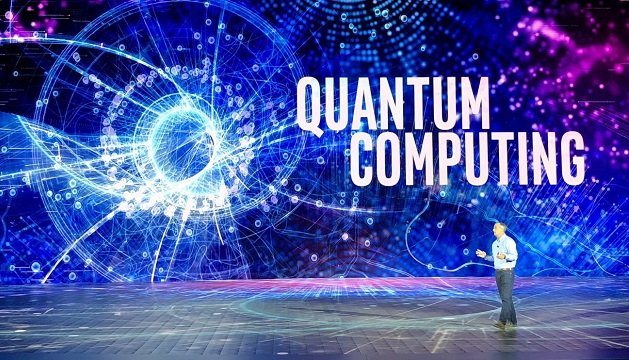
Without change, there is no innovation, creativity, or incentive for improvement. Those who initiate change will have a better opportunity to manage the inevitable change.” William Pollard
In contrary to conventional computers, quantum computers (QC) could store massive information and can break the codes that were considered earlier resilient. The QC promises to offer exciting developments in various fields, from materials science to pharmaceuticals research. Many computing research institutes including Google, IBM, Intel, Microsoft, NASA, and many others have revolutionized the concept of QC to manufacturing pocket calculator sized computers. A “qubit” is the basic unit of quantum data, the quantum equivalent of the “bit” in a classical computer. The fundamental physics behind QC relies on generating pairs of qubits that are “entangled,” means the two moieties of a couple occur in a solo quantum state. The world’s superfast computers have quintillions of bits. In contrast, the quantum chip contains much more extensive information with only 72 qubits.
Though the concept of QC is reasonably offbeat as compared to classical mechanics, it can do wonders in various fields ranging from medical research to security checks. It can tailor highly productive pathways of drug development, in which proteins are engineered to manufacture new vaccines. Novel drug therapies can be generated to combat serious ailments, including but not limited to cancer, various neurological and heart diseases.
By utilizing quantum mechanics, Google, in collaboration with IBM, has manufactured the world’s highest efficiency quantum computer chip. It can accomplish a mathematical task within seconds with great precision, that the world’s fastest supercomputer could perform only in months and years. The practical value of QCs lies in power saving. The energy consumption of a system is about 20 kW, versus the conventional supercomputer’s consumption of 10-20 MW, consuming almost 1,000 times additional energy.
Another critical utility is in operating the electric cars, mainly based on efficient cell chemistry of the batteries. Quantum mechanics can be implemented in simulating battery-cell chemistry, boosting the performance limits and ageing of battery cells. Daimler, the parent company of Mercedes-Benz, in collaboration with Google, has developed more powerful, robust, and less expensive vehicle fuel batteries. Relevant to artificial intelligence, machine learning can also be steered at high speeds on a QC. The high computational efficiency of QC will also help the world in combating the food shortage by manufacturing the fertilizers. It comes into play by providing a new way to improve the catalysts used in the production of ammonia. Moreover, quantum mechanics can be utilized in designing the world’s most powerful supercomputers to model high-resolution weather forecasts.
“Every once in a while, a new technology, an old problem, and a big idea turn into an innovation.” Dean Kamen
As every new advancement comes with a price, the QCs have some drawbacks too; the topmost is the “decoherence”. The system makes calculations in nanoseconds and can retain the information only for microseconds. This flaw is attributed to its extreme sensitivity to heat, radiation and magnetic field. That’s why the QC chips are protected by multi-layered shielding and cooling down to -273 °C. Despite all, quantum computing technology is still in its infancy stage. It’s a new paradigm that is on the threshold of execution. Because of their unique special individualities, we are opinionating the hybridization of the classical computers and quantum processors, so that each system can contribute its peculiar métiers.